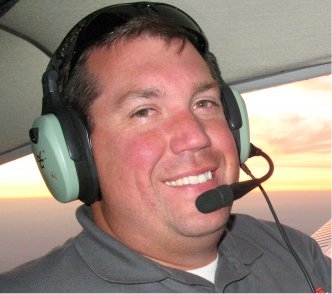Drug testing and your CFIs, part two
As a flight training provider, you might be thinking, “Why should I bother drug testing my employees if the FAA doesn’t require it?”
Safety is a first consideration.
While it is possible to test if an individual has used a substance such as marijuana, the difference between “has used” and “is currently under the influence” is less clear than what can be revealed in the tests available for alcohol. Imagine the case where an employee CFI tested positive for marijuana after an instructional accident, but denied using marijuana on the day of the accident. In a court, it would not be possible that the admission of use of a federally illegal substance, one obviously prohibited by the FAA, was causal in the accident or was no longer a factor based on available tests.
I wish I could tell you I had never overheard a group of flight instructors talking about drug use, but I have—on multiple occasions. I can’t tell you I have suspected any who were flying under the influence of any drugs, but I have overhead conversations of their weekend tales of “getting high” and using cocaine. In a few cases, these same individuals were caught by random drug tests and their work history with that employer was cut short as a result.
If you don’t have a check in place as a flight training provider, you won’t catch those dangers. To some degree, having the practice and catching even one user and making an example of that employee is a strong dissuading factor to others who might consider using drugs and working for your operation.
A second consideration should be liability.
I can’t tell you your insurance provider will give you a discount for your operation if you have an established drug testing policy in place, but they might. I can tell you that if you don’t have one, and an instructor and/or student involved in a mishap tests positive in the aftermath for any illegal substances, your liability level may be higher as an operation for not having had a testing practice—especially in a civil court action. A grieving family can sue your operation for virtually anything in civil court. Policies that limit liability and potential danger to your customers can only help in front of a jury.
If nothing else, if any of your flight instructors—or worse, more than one—start getting the reputation for illegal drug use, I imagine the oversight from any managing FAA Flight Standards Office would become more active. And warranted.
If you are reading this as an instructor who thinks this is yet another article about how business is being told they can fire you for silly things, think again. You are operating in a highly structured, federally regulated industry. If you are pursuing a career as a professional pilot, you need to know that while not all flight training operations test for drug use, nearly all professional pilot operations will probably do so. Don’t risk your career because your state allows something that the federal government—the entity that regulates your pilot and flight instructor certificates—still considers illegal.
As the legal standing of some controlled substances changes in individual states around the country, flight training operations have the benefit to some degree of operating under federal guidelines and laws. For now, those federal laws take precedence from an employer standpoint. You don’t have to be an airline to have a good drug testing policy in place. Such a policy can allow you to legally manage risk for your training operation.



